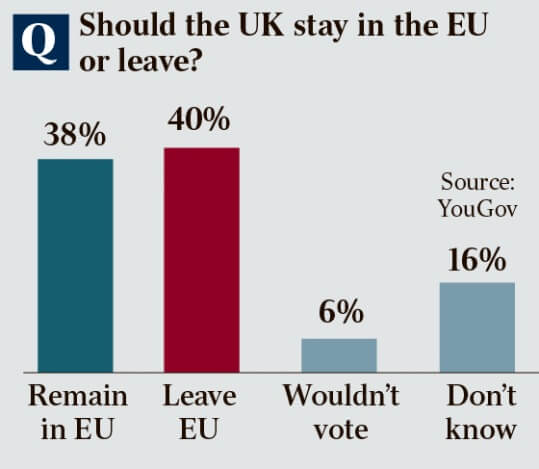Usually, the outcome of a referendum in Italy on constitutional reform or the result of an election for the figurehead post of the Federal President of the Austrian Republic would be greeted with a degree of indifference in the rest of Europe. As we know all too well, 2016 is different.
The referendum in Italy should be about helping Italy towards a more stable and effective reforming style of government. Instead it has morphed into another broad test of public sentiment towards the political establishment, both national and European. More than that, they threaten the financial stability of Italy, mired in a banking crisis that may yet overwhelm the resources of the eurozone to deal with it.
In Austria, a rerun of an annulled presidential election sees a near neo-Nazi challenging for a symbolically important victory, once again in an act of defiance by the voters towards their rulers. They have nothing else in common, but then again they don’t need to in order to deliver another crisis. These elections take place on Sunday, and already the markets are showing signs of distinct nervousness about the outcome. After Brexit and with no one ruling out the possibility of a Marine Le Pen presidency in France, after elections in April, the future of the European Union has never looked dicier.
Italy’s Referendum: The People Vs. The Establishment
On December 4, electors are called to express themselves on some of the modifications on the Constitution proposed by Matteo Renzi.
The question that will be asked to voters in the referendum is:
“Do you approve the text of the Constitutional Law concerning ‘Provisions for overcoming equal bicameralism, reducing the number of Members of Parliament, limiting the operating costs of the institutions, the suppression of the CNEL and the revision of Title V of Part II of the Constitution’ approved by Parliament and published in the Official Gazette no. 88 of 15 April 2016?”.
This technical formula is hard to understand by non-Italian readers. In synthesis, it proposes the modification of 49 articles of the Magna Carta, which was approved in 1948 after the victory over fascism and nazism. To the Primer Minister and the supporters of the proposal for change, this measure would make the system less bureaucratic, allow for decisions to be taken more quickly, and get rid of useless, expensive and parasitical institutions such as the division of the country in provinces as administrative units, or the National Institute of Economy and Work, which is a consultive organism of the government, of the chambers and the regions, which has competence in matters of economic and social legislation.
After Trump, Italy could be the next anti-establishment revolt
BEFORE American voters—especially white, male, rural and older ones—carried Donald Trump to victory in America’s presidential election, aggrieved British voters with a similar profile voted to leave the European Union. Equally surly voters in France have been flocking to Marine Le Pen of the far-right National Front for months; she is tipped to make the run-off in next year’s presidential election. Alternative for Germany, an anti-immigrant party, is picking up support ahead of a federal election in Germany, also in 2017. Large parts of electorates across the West are fed up with traditional political parties that have in recent years presided over rising inequality and slow economic growth.
Italie : quels scénarios pour l’après-référendum ? Par Romaric Godin
C’est une bonne nouvelle pour Matteo Renzi. La croissance italienne s’affiche au cours du troisième trimestre 2016 à 0,3 %, autant qu’en zone euro et, pour la première fois depuis début 2009, l’Italie fait mieux que l’Allemagne sur un trimestre. Mais c’est sans doute une maigre consolation, car ce rayon de soleil jaillit de sombres ténèbres : le référendum prévu le 4 décembre prochain sur les réformes constitutionnelles qu’il a proposées s’annonce très difficile pour lui. Et il y a fort à parier que les Italiens n’ont pas réellement senti les effets d’une croissance qui demeure faible et peu fondée sur une amélioration de leurs conditions d’existence.
Referendum in Italy: flares of popular revolt
Why is the upcoming referendum so important?
It is important both because of its content as well as for the symbolic meaning it has assumed. The strokes of the counter reform against the constitution fall very hard. The newly conceived Senate (Upper House), for instance, retains important powers (such as on constitutional questions, in the relations with the EU, about local authorities, the election of the president, etc.), but should no longer be elected. The Senate was thus not abolished, as Renzi’s propaganda pretends, but it was democracy has been abolished. But the most important point of the counter reform is the election law (“Italicum”) which allows, through the ballot mechanisms, to obtain with just 40% of votes, 55% of the seats. It’s a law conceived by and in favour of the Democratic Party (PD). If it is passed, it will lead to a de facto presidentialism. A part for all its specific contents, the referendum has been charged with a more general political meaning: it is a vote on Renzi and Renzism. In this sense it represents a new round in the revolt of the under classes against the elites with a clear class content. And it is no coincidence that the polls predict a majority of NO in the Centre and the South (where poverty and unemployment are widespread), while in the North-West the YES appears to be in advantage.
Italy banking crisis on the wall
In Italy the banking crisis has been written on the wall for some time, the product of the concurrent circumstances of a weak economy (with attendant increase in the banks’ NPL [non performing loans]), the imposition by the ECB of ever tighter capital requirements along with near-zero interest rates and untimely adoption of bail-in provisions.











